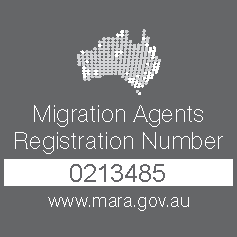Australia’s constitution has recently been under the spotlight which has ended in drama in Parliament. We’ve witnessed two members of the Federal government, The Greens’ co-deputy leaders Scott Ludlam and Larissa Waters, resign from their positions after they discovered that they were also citizens of New Zealand and Canada respectively. Both were born overseas and had a duty to check their nationality status.
Meanwhile, Liberal Matt Cavanan has dual Italian/Australian nationality. Although Matt Canavan was born in Australia and so were his parents, his mother lodged an application for Italian citizenship which he claims he was unaware about. His case has now gone to the High Court.
A further MP, One Nation’s Malcolm Roberts, has also been caught up in the citizenship row. He claims he had written to British officials on the 1st of May last year, enquiring as to whether he was a British citizen. He didn’t believe he was, but wanted to check while filling in his nomination form.
Roberts didn’t receive a reply so he wrote again on the 6th of June requesting that if he did have British citizenship he’d renounce it. He eventually received confirmation six months after he was nominated as a Senate candidate. His case may also be referred to the High Court.
Whatever your political persuasion, there’s no doubt that all these MP’s put Australia first, so what went wrong and what made them flout section 44i of Australia’s constitution?
What is Section 44i of Australia’s constitution?
Section 44i of Australia’s constitution sets out rules which declare that dual citizenship will prevent a person from serving in Parliament.
It was originally designed to ensure MP’s had a clear and undivided loyalty to Australia and would not be subject to any influence from foreign governments.
When was it introduced?
The Australian constitution was drafted more than a century ago, and it states that an MP can be disqualified from office if that person is ‘under any acknowledgement of allegiance, obedience or adherence to a foreign power or a citizen entitled to the rights or privileges of a subject or a citizen of foreign power’.
Nearly half of all members in the first Australian Parliament were born overseas, those born in Australia were classed as British subjects and legal concept of Australian citizenship didn’t exist until 1949.
Section 44i also states clearly that those with dual nationality aren’t eligible to run as an MP in the first place.
Each member is given a handbook when they enter office, but it appears some have failed to digest the full information.
Should we look for constitutional change?
Many believe that this law is now outdated. Australia is a truly multi-cultural society with statistics proving that more than 50% of the population were either born overseas or have a parent who was born overseas. Many argue that we should have politicians who represent the cultural make-up of our society and want to see a referendum to change this part of the constitution.
This event has shown that some Australian citizens, even those in the public eye, are unaware they are dual citizens, so if you’re intending on entering the political arena you may want to check your background.
Visa Solutions Australia is a well-established migration agency. We have a team of experienced staff who can help you with all your enquiries, whether or not you’re considering standing for Parliament!







